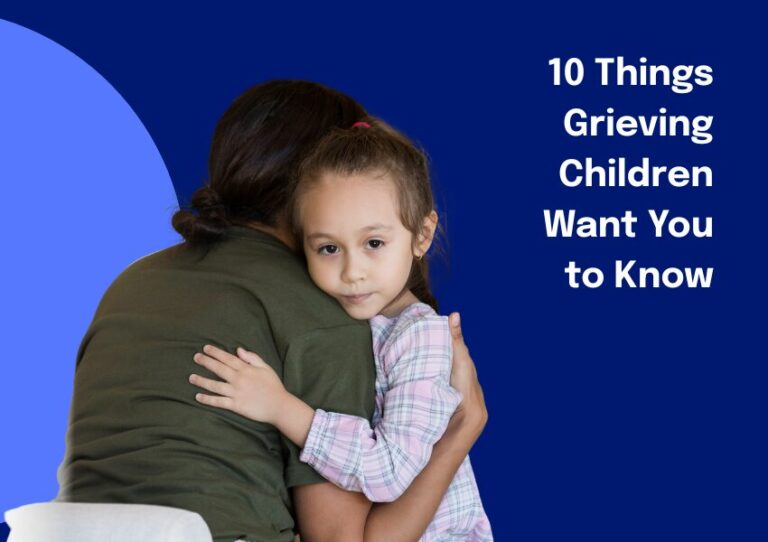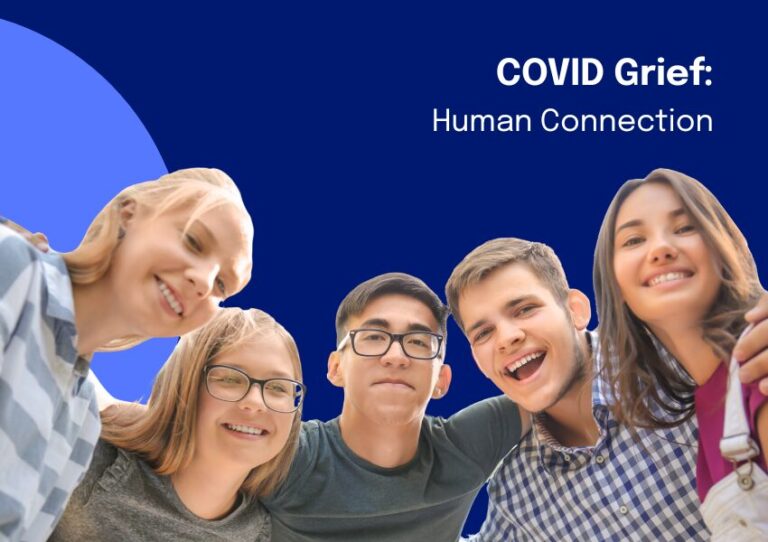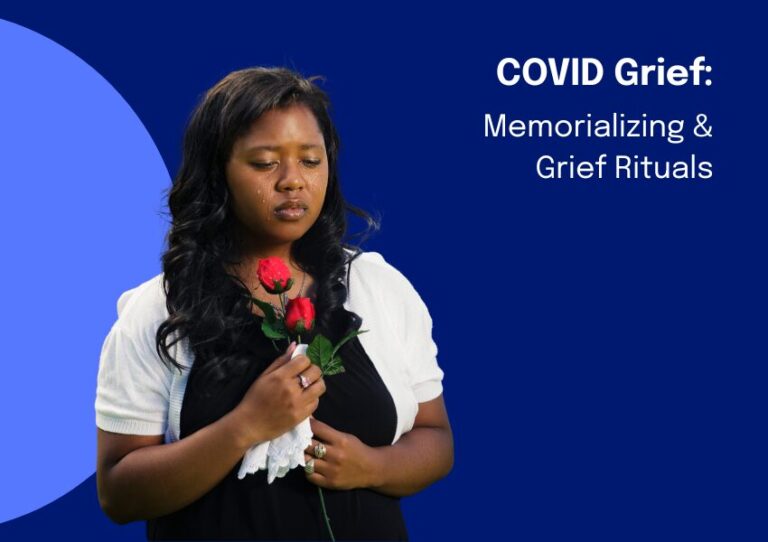COVID Grief: Human Connection

Human Connection as a Protective Factor:
Grieving as a human experience is often rooted in our relationships, however complex, with other humans. For more affectionate people in particular, human warmth and touch can help to alleviate stress. For children, studies show that a lack of touch can be associated with delayed speech, sleep problems, low school performance, and aggression. Therefore, demonstrated affection by a trusted person or caregiver, can soften some grief responses – especially for children and teens.
COVID’s Impact:
Affection and physical touch were considerably impacted during COVID due to social distancing guidelines and restrictions. This disruption in human contact and healthy touch consequently caused an increase in anxiety and loneliness. When compounded with the death of a close person, loneliness can also be linked to depression and complicated grief. Supportive networks like clubs and teams have also been stretched thin and our bandwidth for compassionate warmth and communication has narrowed.
What to do– suggestions for the bereaved:
- Stay socially connected to the extent possible. Be intentional about staying connected during stressful events and throughout the grieving process. Communicating, even with text messages, is beneficial during stressful events. Be mindful that our society is still learning how to navigate grief, especially related to COVID and may not always know what to say or what to do to show support. Many people also continue to cope with pandemic-related stressors and have limited capacity to maintain deeper
- Learn more about bereavement bodywork. There are several therapeutic modalities that also specialize in grief. Consider the following bodywork methods specializing in grief: massage, aromatherapy & therapeutic sound, acupressure, and shiatsu.
- Expand support networks. Consider joining grief support groups like Salt Water or The Dinner Party. For children and teens, check out Camp Erin – the largest free bereavement program for children and teens in the U.S. and Canada. Click here to find your camp.
- Consider safe alternatives to a traditional hug. To show love and affection, friends and families may choose to create a special hand signal with the dying person, say ‘I love you’ in sign language, design a handmade card, cook a favorite meal, order takeout, or send a care package. Take a look at Eluna’s care packages to support a child or teen impacted by grief, addiction, or suicide. Each care package is accompanied by an Eluna Resource Center report with recommended therapeutic activities and resources.
This is one protective factor of a series. For the comprehensive resource click here: COVID Grief: Protective Factors & the Impact of the Pandemic
This resource is made possible through a partnership with the Brave of Heart Fund, founded by the foundations of New York Life and Cigna, and administered by E4E Relief.


